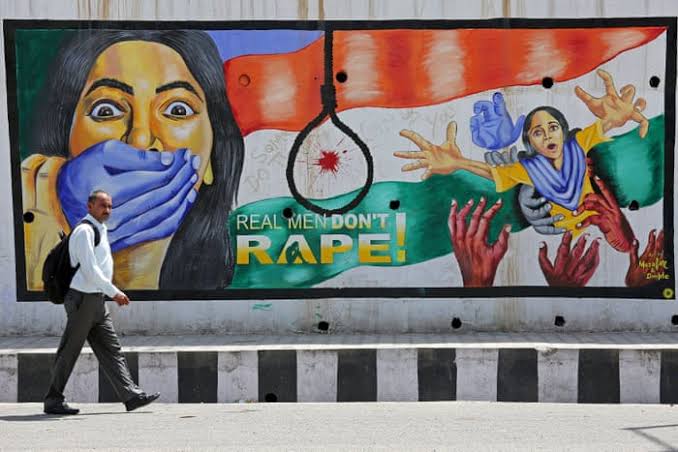The social and cultural set up in India is becoming increasingly vile when it comes to status of women, especially those belonging to Minority groups. Muslim women among these are intensely caught in the crosshairs of extremist Hindutva ideologue of Rashtriya Swayamsevak sangh (RSS).
Her life is constantly a subject of public discussion, while her own opinion on it is nowhere to be seen. In recent months, a new femo-nationalist propaganda has gained traction whereby Hindu women belonging to Durga Vahini or some other extremist Hindutva organization are compelling Muslim women to marry a Hindu man to find ‘freedom’ from their alleged oppression. In an apparent spectacle, this just appears to be another strand of India’s purported Love Jihad whereby India fears Hindu women falling into the so-called Muslim Trap.
On one end, Saving Muslim women is becoming an increasingly important component of BJP-RSS’s Hindutva ambitions and yet on the other, there are instances where prominent politicians like those of Sri Ram Sena’ Chief Pramod Muthalik shows no contempt in offering employment and security to Hindu men luring Muslim women.
“I would like to invite the youth here. If we lose one Hindu girl, we should trap 10 Muslim girls. If you do so, the Sri Ram Sena will take responsibility for you and provide every kind of security and employment,” Indian media quoted the Hindutva leader as saying.
The practical manifestations in India, are hence highly paradoxical to stated Indian ambitions of providing security to Muslim women, specifically.
A Thompson Reuters Foundation survey reported more than 400, 000 incidents of crime against women in 2018 alone, ranking India as the most dangerous country for women in terms of their culture, religion and sexual exploitation. In 2021 alone, more than 31, 000 rape cases got registered in India with many more silenced due to social constraints.
Women of all religions are fighting such horrendous social evils in India with conditions for Muslim community even grave due to prevalent systemic prejudice and culture of immunity against the community. This is evident in Karnataka’s hijab ban and its high court upholding the ban on hijab by the educational institutes on 15 March 2022.
Although the newly elected Congress government (in May) over the state has called for overturning all such laws formulated on communal basis by BJP with Priyank Kharge, the former state’s cabinet minister maintaining that the Congress will withdraw the ban on hijab, halal cut and cow slaughter laws. Materialization of such high proclamations, is yet to be seen whatsoever.
By maintaining the heinous rhetoric of Hindu men as a source of security for Muslim women, RSS-lead Hindutva ideologue is creating further angst and misery for them as horrors of 1991 Kunan-Poshpura dignity massacre-when more than 100 women of all ages were raped by a unit of Indian security forces in a single night during a search operation in Kashmir’s remote Kupwara District or instances of websites-Sulli Deals and Bulli Bai App-auctioning Muslim women-still resonate in the horrors of their subconscious.
Indian Illegally Occupied Jammu and Kashmir has alone seen more than 11, 000 instances of rape incidents since 1989, reports Kashmir Media Service.
By carving out this farce sense of security, RSS-lead BJP is festering the miseries of Muslim women who are already fighting socio-cultural stereotypes created through the lens of Hindutva ideologue and hence categorically directed against them. This brings them to the situation where they cannot even bring genuine cases of harassment and intimidation to fore fearing such instances could be used against entire Muslim community in general as Indian regime is making all-out-efforts in making an imposter of all Muslim men as oppressors and hence Islam as a religion that snatches away freedom.
In order to provide Indian women a true sense of security, it is pertinent for the state to preserve their right to freedom of religion and expression and make systemic introspection, at earliest. These basic rights are what ensure social security in the society and that specifically for vulnerable populace.







